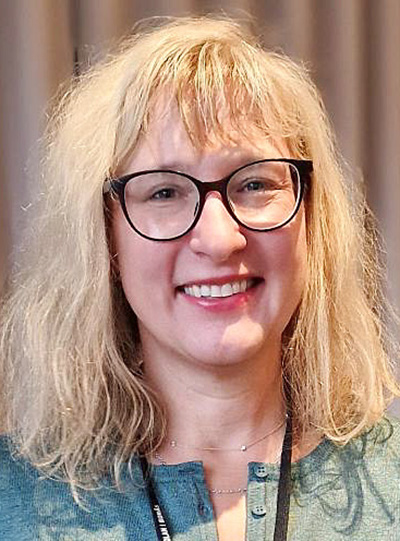New research: Young people’s identification with Sweden
2024-05-28

In the recently published study "'I am maybe half-and-half Swedish. 50-50.' -Young adolescents' national identity negotiation in a diverse school setting" researchers Eva Medin at the University of Borås, Ylva Svensson at University West, and Göran Jutengren at Østfold University College have immersed themselves in the complicated world where young adolescents negotiate their national identity in school environments characterised by ethnic diversity to highlight topics such as migration and self-perception. The study was published in the Scandinavian Journal of Educational Research.
“ Our results highlight the nuanced ways in which young people struggle with their identity. We found that they see their national identity differently from how researchers have previously asked them about it. This reminds us how important it is for researchers to consider the perspectives of children and young people,” said Eva Medin, one of the evaluators of the "Whole School" project and first author of the publication.
Our results highlight the nuanced ways in which young people struggle with their identity. We found that they see their national identity differently from how researchers have previously asked them about it. This reminds us how important it is for researchers to consider the perspectives of children and young people,” said Eva Medin, one of the evaluators of the "Whole School" project and first author of the publication.
“The young people often formulated their identity as quantifiable and saw it as parts or percentages, for example 25 percent Swedish. And the dichotomy of being either Swedish or non-Swedish, instead of Swedish and other specified ethnicities, emerged as an important theme in the young people's identity negotiation, which is not something that has previously been seen in the literature,” said Eva Medin.
A sense of belonging as well as the young people's country of birth, appearance, and language spoken at home were also important factors for their national identity, especially for those with a foreign background.
These results can be of great importance
The consequences of the results in the study extend beyond the world of research. The results may have significant implications for future educational practice and curriculum development, particularly citizenship curricula, as well as for larger societal policies. Understanding the complexities of young people's views of national identity is crucial for creating inclusive environments and communities that foster a sense of belonging, especially for young people of foreign backgrounds.
“We hope that this research contributes to the ongoing debate about promoting inclusion, understanding, and a positive sense of identity among young people as societies become increasingly multifaceted. Strong national identities are associated with many positive results for both young people and communities,” concluded Eva Medin.
The study is a continuation of the research project "The Whole School: School and Social Service-Based Integration Work" at R&D Sjuhärad Welfare at the University of Borås. The research project consisted of integration work in a multicultural school environment. The research project was financed by the Public Health Agency of Sweden and carried out in collaboration with the City of Borås.
Another study to be presented
In June, another study within this research project, also linked to ethnic identity, will be presented at an international conference at Malmö University. The study to be presented by Eva Medin and Göran Jutengren is entitled "'My best friend is from another country'– Participatory Visual Method for Studying Cross-Ethnic Friendship Ties in Schoolchildren" and it deals with cross-ethnic friendships ties among schoolchildren in a diverse school environment in Sweden.
The conference has been arranged by the Children's Identity & Citizenship European Association, CiCea and will be held at Malmö University.
Solveig Klug

